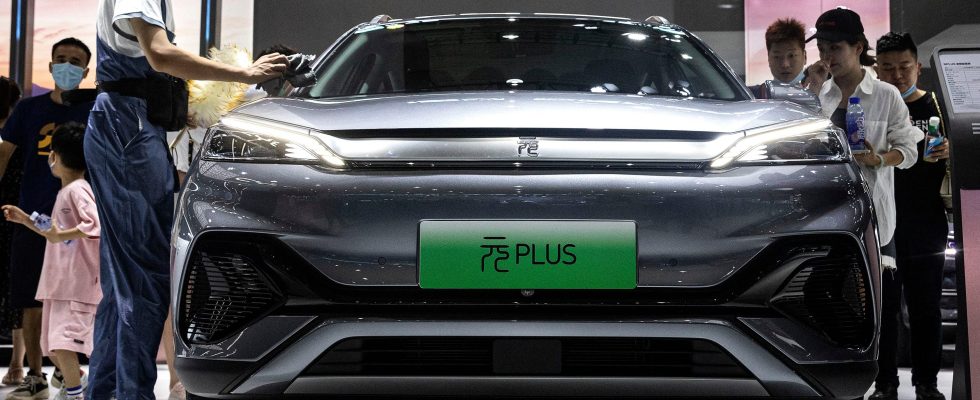The Chinese elites had dreamed of building a capitalist country, opulent and stable, whose economy would have been fueled by the steadily growing incomes of the middle class, within the largest consumption space in the world. The internal market would have protected the country from international turbulence. China’s GDP would have exceeded that of the United States, mired in deindustrialization, for a return to the historical normality of things, after the parenthesis of the 20th century. It would then have been possible to gradually revalue the yuan to increase the purchasing power of employees, and show the world that China no longer needed to pursue an offensive mercantilist strategy to ensure its prosperity.
Monstrous industrial overcapacity
Today, it is clear that this plan has failed. The Communist Party erred on the side of constructivism, believing that an internal market could be built with good planning. But economic and geopolitical life functions chaotically, even in an authoritarian country. Without having purchased Western vaccines, China emerged from Covid behind the others. Households, whose income in the event of illness or upon retirement is not protected by a welfare state, still save 30% of their income – double that of France – regardless of what the government says or wishes. Xi Jinping’s policy of all-out interventionism and his Maoist discourse have blocked the path to Western-style prosperity. China therefore remained stuck in the 2010s: an ultra-aggressive industrial and export economy.
This aggressiveness is spurred by the country’s economic difficulties, and in particular its monstrous industrial overcapacity which forces companies to lower their prices. Where we are fighting inflation, China is in full deflation. The wages of workers in Shenzhen are the same as those in Eastern Europe, but prices remain to the advantage of Chinese production. Since 2001, according to the consumer price index, prices for local automobiles have fallen by 40%, at constant quality, and the decline continues. Never has the Chinese trade surplus been so high and never has the European Union’s trade deficit with China been so large. Since 2021, the pace of car exports has seen a spectacular change: the curve is almost vertical!
America in ambush
It is in green industries that this aggressiveness is most notable. In the sector of electric cars – in which it has become the world leader –, batteries and photovoltaic panels, Chinese industry is expanding already massive production capacities, achieving economies of scale and lowering unit production costs. It is also in these industries that Joe Biden’s America is consolidating a new pillar of its economic power. The Inflation Reduction Act, this gigantic system of tax credits, allows the Americans to quickly ramp up in the same sectors as China, which gives rise to an extremely competitive green duopoly, which now constitutes the infrastructure of global economy. Ecology is the terrain on which the domination of global industry between the two competing powers is played out, for the greatest benefit of decarbonization.
Nothing is more effective than competition in driving down prices and increasing adoption of a product. Let’s take photovoltaics, since this is where the industrial battle waged by China is the oldest and strongest: the price of the watt produced by a solar panel has fallen by 99.6% since 1976. Environmentalists should congratulate them every day but they are too busy spreading their anti-capitalist morality. However, we have known since Adam Smith that the least well-intentioned and most aggressive behaviors can have virtuous consequences. The battle between China and the United States will get the better of carbon.
Nicolas Bouzou, economist and essayist, is director of the consulting firm Astères
.
